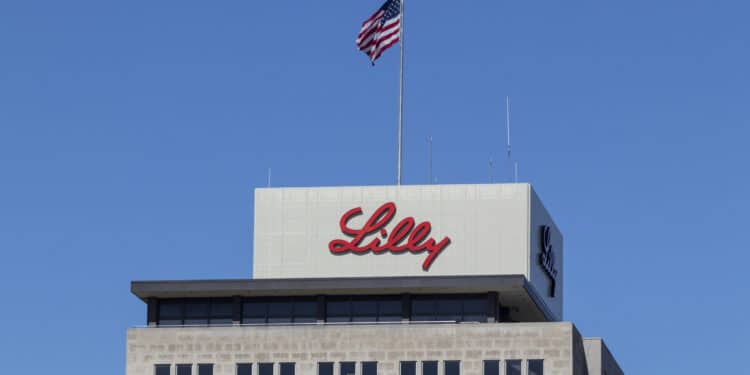Amrit Mula was a top human resources officer at Eli Lilly and Co. for almost 15 years. She worked at “one of America’s largest biotech plants,” a factory in Branchburg, New Jersey, and according to a Reuters article from March 11, 2021, she continuously raised concerns about safety, falsification of records, and other issues to her superiors. On June 6, 2022, Mula sued Eli Lilly and alleged that the company engaged in whistleblower retaliation.
Mula Shed Light on Safety Concerns at Eli Lilly
According to the Reuters article from last year, Mula, throughout her tenure at Eli Lilly, “had been investigating employee complaints about manufacturing problems related to multiple drugs, including the company’s blockbuster diabetes medication, Trulicity.” Internal company documents showed an allegation that “[r]ecords had been falsified or destroyed in the wake of manufacturing mistakes. In one case, according to 2018 emails among executives, company-mandated quality assurance documents were missing for Trulicity, which security filings show garnered more than $4 billion in sales in 2019.”
A “demand” letter Mula’s attorneys sent to Lilly’s attorneys on December 30, 2019, stated that Mula “repeatedly pressed her superiors to address serious problems at the factory, including staffing shortages, poor training, and record destruction and falsifications.” According to the letter “and internal correspondence,” Mula’s “inquiries…were downplayed, ignored and sometimes blocked.”
The Reuters article states that one morning in the spring of 2019, Mula arrived at her office “to find a desk drawer open that she had kept locked” with her files gone. Her boss told her soon after “that Lilly was eliminating her position at the Branchburg plant.”
According to the article, “internal correspondence and other company documents” that reporters reviewed showed that Mula “repeatedly received complaints and raised concerns about everything from quality control to record-keeping with a host of Lilly managers and executives.” Additionally, three former employees of the Branchburg factory spoke to Reuters anonymously and said that “such problems were endemic” at the facility. Mula told Reuters, “I was just doing my job.”
Employees at the factory began to bring more serious issues to Mula’s desk in 2018: one anonymous employee “called Lilly’s ethics and compliance hot line to report that inadequate staffing and high turnover was a problem at Branchburg” and the issues were contributing to a “heightened stressful environment” in which the employees were working. “Around the same period, emails show, Mula was notified that contamination or other errors in at least nine instances led ingredients or other materials to be discarded.” Emails reveal that “Mula suspected in some cases that the items were improperly disposed of or ‘dumped’ inside the factory.”
An October 1, 2018 complaint Mula received pleaded for help: “WE ARE TIRED AND OVERBURDENED AND DON’T HAVE ENOUGH PEOPLE WORKING ON THE FLOOR,” the anonymous complaint read. “PLEASE SUPPORT US AND STOP THIS STUPIDITY.” Mula continued to raise concerns about staffing, and emails show that others at the company began to treat her differently.
In response to Mula’s complaint, Kathryn Beiser, Lilly’s spokeswoman, “said the company has ‘rigorous’ quality assurance systems in place and welcomes feedback from employees.” On the staffing issues, Beiser “said the company ensures that the staffing at all its sites is appropriate, and Branchburg has seen only marginal variations in staffing levels over the past six years. She did not disclose specific figures.”
Mula also filed an internal retaliation complaint with the company in December 2018 and alleged that executives aimed to “discredit and deter me from completing the investigations that were yielding unfavorable results.” Sometimes, higher-ups would take action regarding Mula’s recommendations “or said they would pass her concerns up the management chain, according to internal correspondence.” However, issues persisted, and Reuters reported in 2021 that eight months after Mula left the company, “[U.S. Food and Drug Administration (FDA)] inspectors cited some of the same lapses she had flagged during her tenure and described in her demand letter.” FDA inspectors classified the findings at the New Jersey plant as “Official Action Indicated,” which according to the FDA’s website “means regulatory and/or administrative actions will be recommended.”
During a later inspection that started in July of 2020, the FDA “discovered signs that Lilly was systematically downplaying significant manufacturing problems,” an expert told Reuters. FDA documents that Reuters reviewed showed that the investigation “found that when the plant’s tests of a migraine treatment drug called Emgality showed problems, the plant repeated those tests until it got the results needed to finish the manufacturing process.” Additionally, the article states that a month after the 2020 FDA inspection, “Lilly drew up internal talking points to brief employees on the agency’s findings and remind them how to comply with regulations.” One point advised workers “not to use informal record-keeping such as ‘sticky notes.’”
The Department of Justice’s 2021 Criminal Investigation
On May 27, 2021, Reuters reported that the U.S. Department of Justice (DOJ) “launched a criminal investigation into Eli Lilly and Co.” that “focused on alleged manufacturing irregularities and records tampering” at the factory at which Mula worked. “[T]hree people familiar with the matter” informed Reuters of the investigation: the individuals also said that the Federal Bureau of Investigation (FBI) was “participating in the probe.” However, no confirmation about the investigation was provided by either agency.
Mula’s Lawsuit Against Eli Lilly: Allegations of Whistleblower Retaliation
Mula sued Eli Lilly on June 6: she alleges “she was terminated after pointing out poor manufacturing practices and data falsification involving one of its blockbuster diabetes drugs,” the Reuters article states. Mula is seeking “unspecified damages” in the lawsuit, which was filed in federal court in New Jersey.
In the lawsuit, Mula states that beginning in 2018, “she repeatedly pressured site ladders…to remedy manufacturing violations involving several biologic drugs, including type 2 diabetes medicine Trulicity.” She alleges that “Lilly executives responded by marginalizing, harassing and eventually terminating her position under false pretenses,” the lawsuit states.




